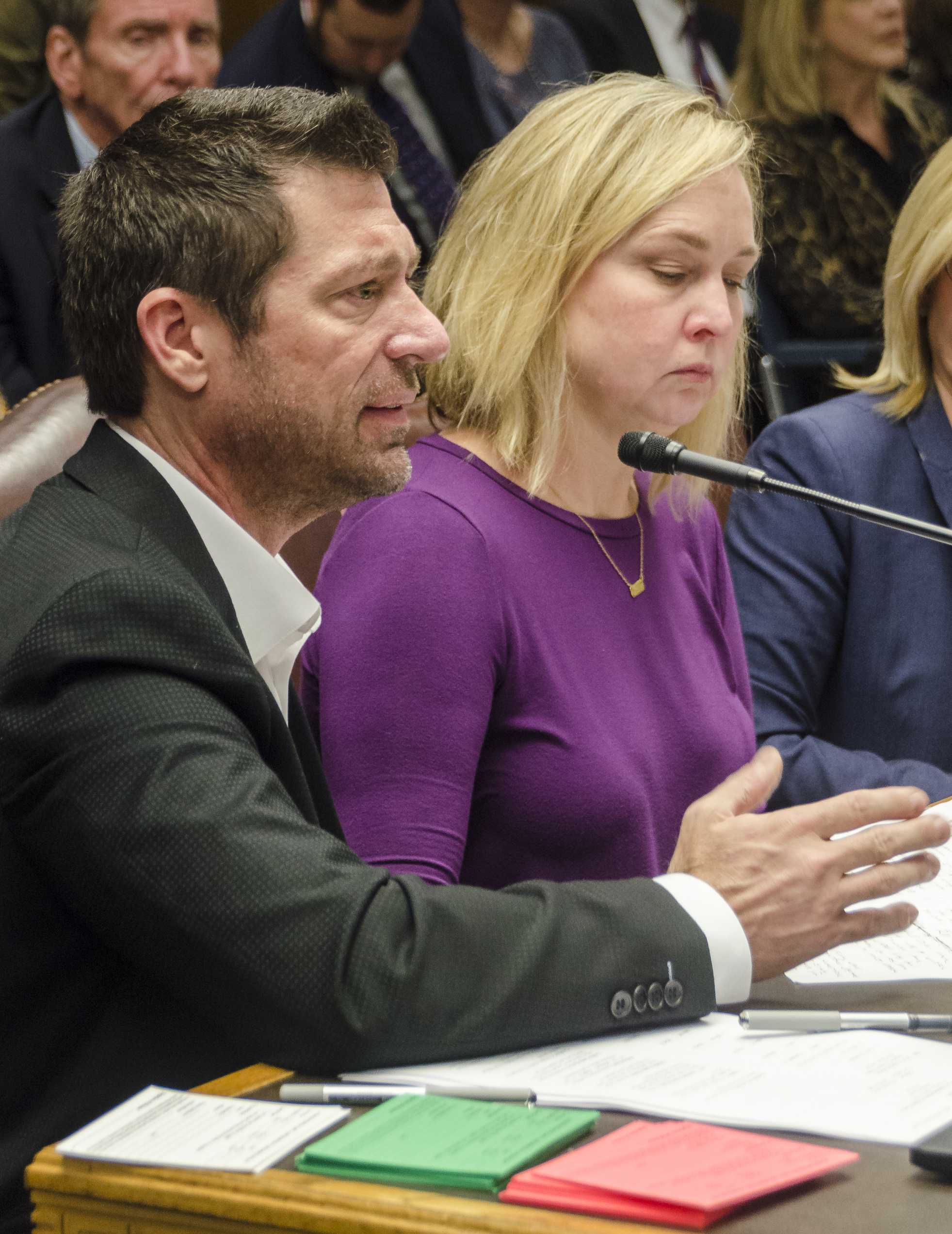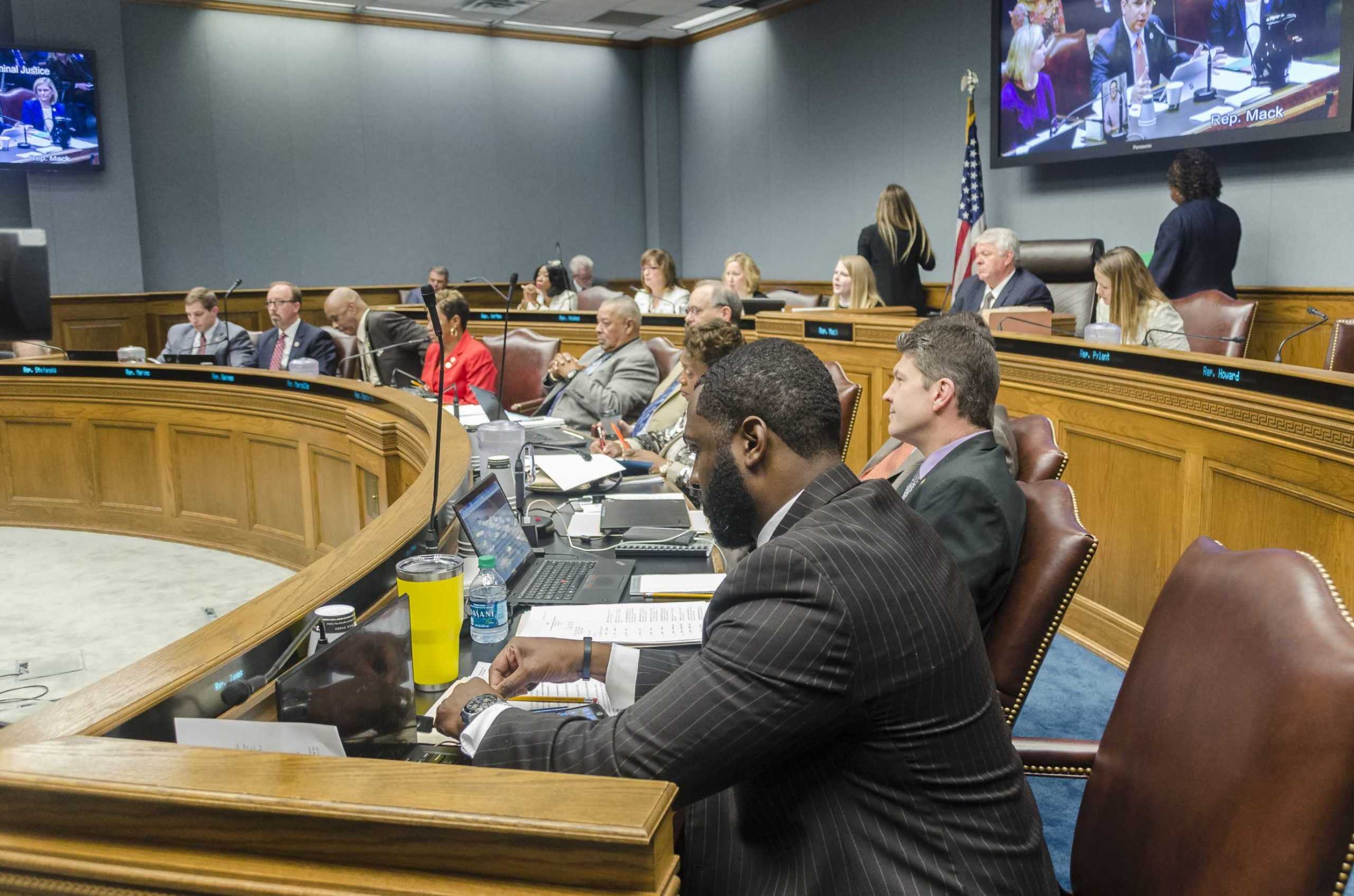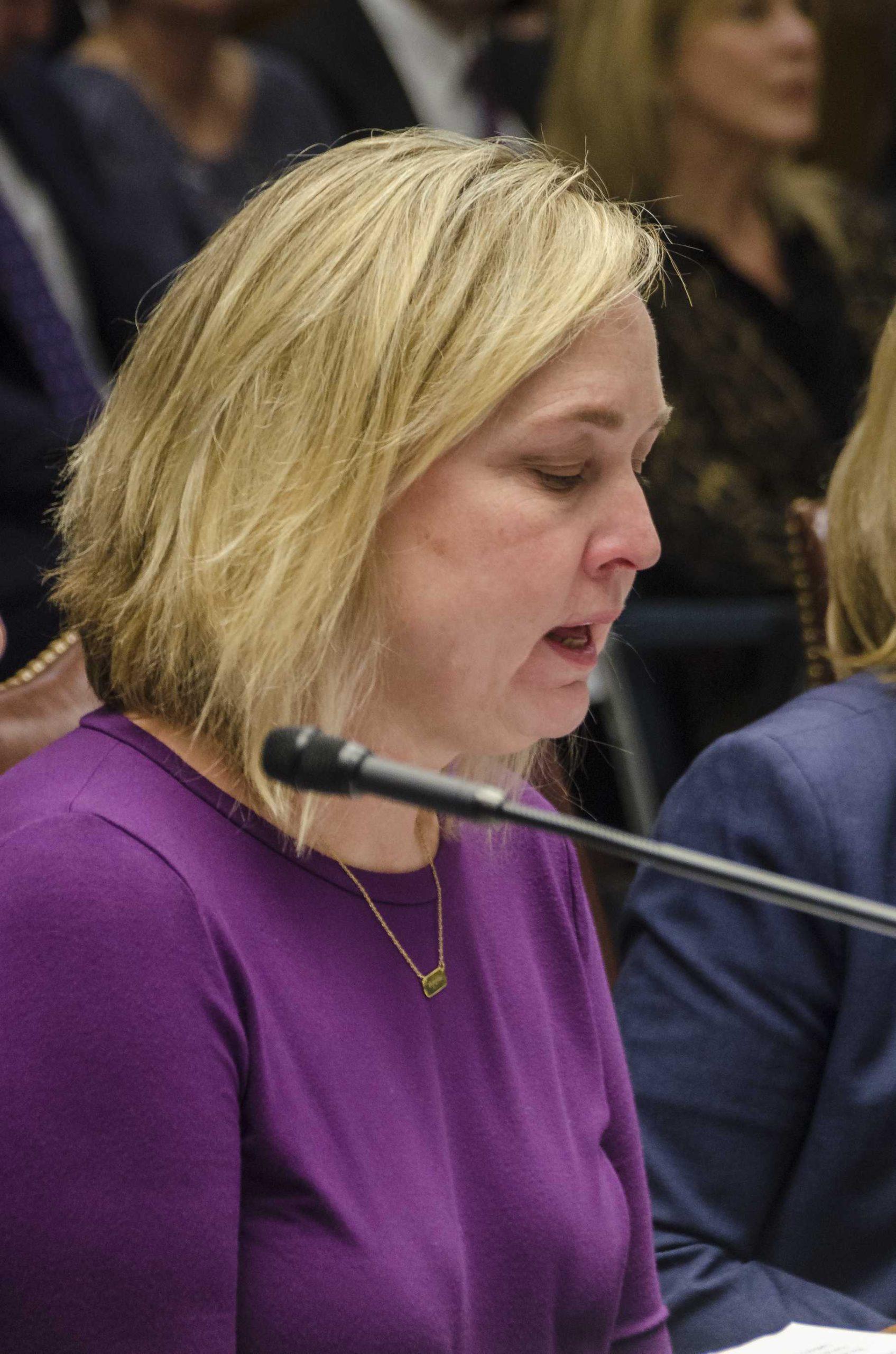The parents of Maxwell Gruver, the University freshman who died Sept. 14 as a result of hazing by the Phi Delta Theta fraternity, attended a legislative hearing for House Bill 78, which would increase criminal penalties for individuals or institutions who have been convicted of hazing.
The bill passed in the Administration of Criminal Justice House committee and will now make its way to the House floor.
Gruver’s parents, Rae Ann and Stephen Gruver, testified in front of the committee alongside Rep. Nancy Landry, R-Lafayette, who is sponsoring and authoring the bill.
Rae Ann gave a detailed testimony about the night of her son’s death. Reading from a statement, Gruver said her son “choked on his own vomit” while active fraternity members failed to call 911.
“Imagine having your child taken away from you,” Rae Ann said. “[When] we dropped Max off at LSU, he was an amazing, caring, sweet young man who was starting to shine his light on the world … now our family is broken.”
Rae Ann said she has avoided talking about the effects Maxwell’s death has had on her other two children because they will “never be the same.”
“We used to have a house full of laughing friends. Now we have a house full of sadness,” Rae Ann said.
She urged the House committee to pass the bill so that others might be saved from the effects of hazing.
“By strengthening the hazing law to a felony … it will deter these young people from participating in hazing rituals,” Rae Ann said. “[HB 78] would’ve saved Max’s [life], and it will definitely save someone else’s in the future.”
Under the bill, those found to have taken part in a hazing event that results in a death would face up to five years in prison and fines up to $10,000.
The bill would also change the definition of hazing to include the consumption of drugs or alcohol which “subjects the individual to an unreasonable risk of harm.” Landry’s bill, if passed, will expand the list of educational groups covered by Louisiana’s anti-hazing laws to include fraternities, sororities, associations, clubs, service groups, spirit groups and others whose members are composed of students attending college.
Stephen said the family has become close to the parents of other victims, such as the parents of Tim Piazza who died Feb. 4, 2017, during a hazing ritual at Penn State. Jim Piazza told the Gruvers, “I just want to get through this year without another death.”
“It gives us a lot of strength to have the support of the other [Parents Unite to Stop Hazing] parents,” Rae Ann said. “It’s a club none of us ever wanted to be in, but for me personally, it’s the best club I’ve ever been a part of.”
Stephen told reporters he’s thankful for the support the state of Louisiana has given the family.
“[HB 78] is the key deterrent to end hazing in Louisiana,” Gruver said. He added that he’s read countless pieces of anti-hazing legislation, and HB 78 is the best written piece that he’s seen.
Before the hearing, the bill excluded educational institutions like the University from being criminally charged in a hazing case. However, Rep. Denise Marcelle, D-Baton Rouge, introduced an amendment striking the line of the bill that excluded universities, which passed without objection.
Landry said the universities were initially left off of the bill due to their public funding. She said any fines the public universities might be subjected to would be paid with public money.
Another amendment was proposed by Rep. Barbara Carpenter, D-Baton Rouge, which would lower the fine for institutions, such as a Greek letter national organization or a university, from $100,000 to $10,000. The amendment passed after a 9-6 vote in the committee.
East Baton Rouge Parish District Attorney Hillar Moore said lowering the fine to $10,000 for large institutions is “a joke, it’s a slap on the wrist.”
Rep. Frank Howard, R-Many, who was one of many who said the bill was not strict enough, asked the committee to “fly this bill high out of here for Max.”
Rep. Valarie Hodges, R-Denham Springs, offered an amendment to the bill to call it the “Max Gruver Act” when it passes. Hodges said she is confident legislators will pass the bill.
“I think having it in Max’s name — of course it means a lot to our family — but I think it’s gonna speak to the young adults,” Stephen said. “It’ll resonate more with them since it’s in Max’s name.”
Stephen told reporters he knows his son is with him everyday.
“We’ll do whatever we have to to make him proud,” Stephen said. “We love him. He’s with us.”
Editor’s Note: Brooke McCulley is an employee of The Daily Reveille and testified in support of the bill at the committee meeting.























